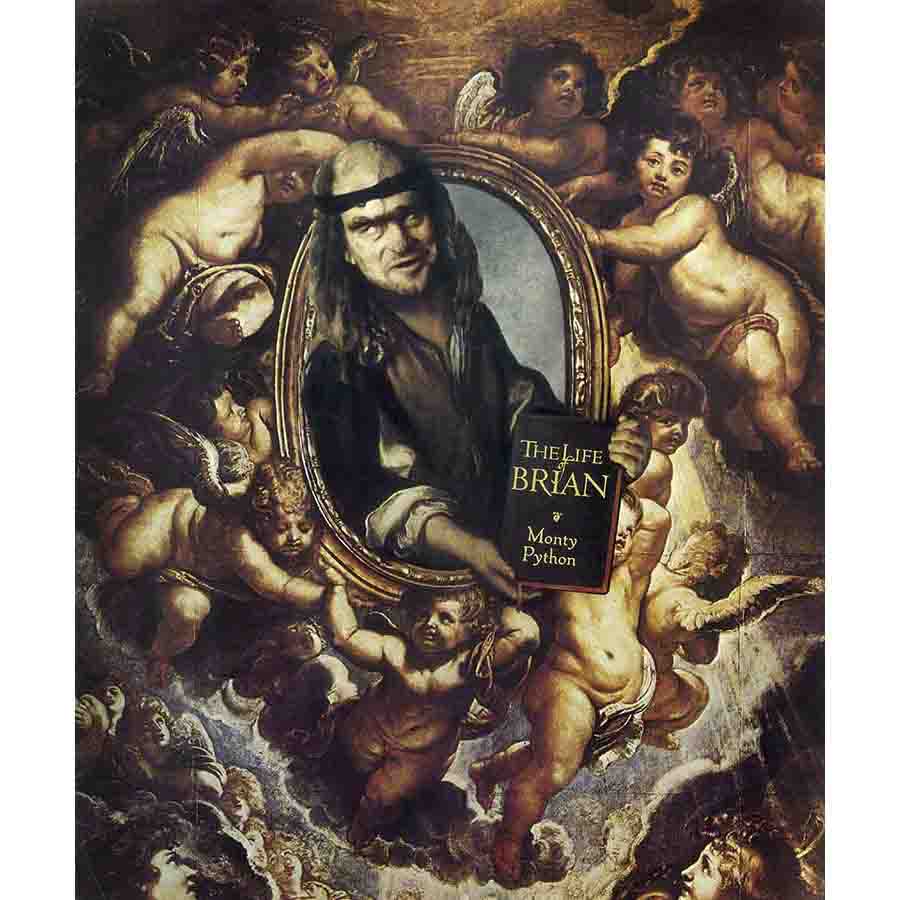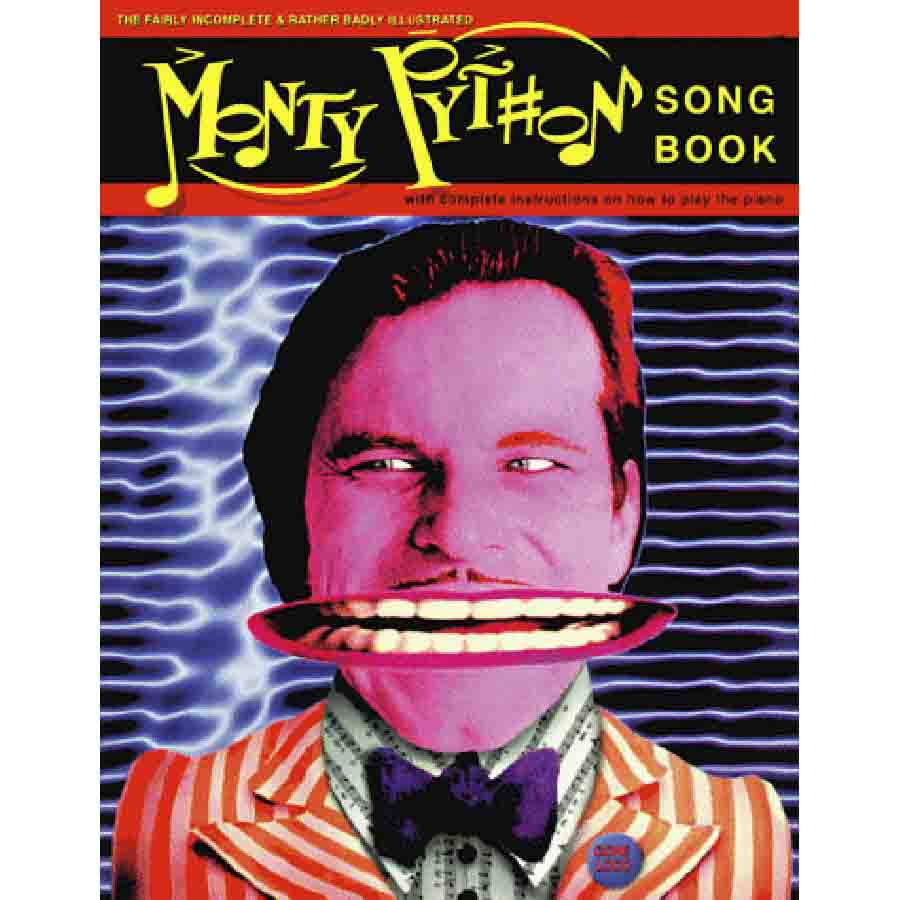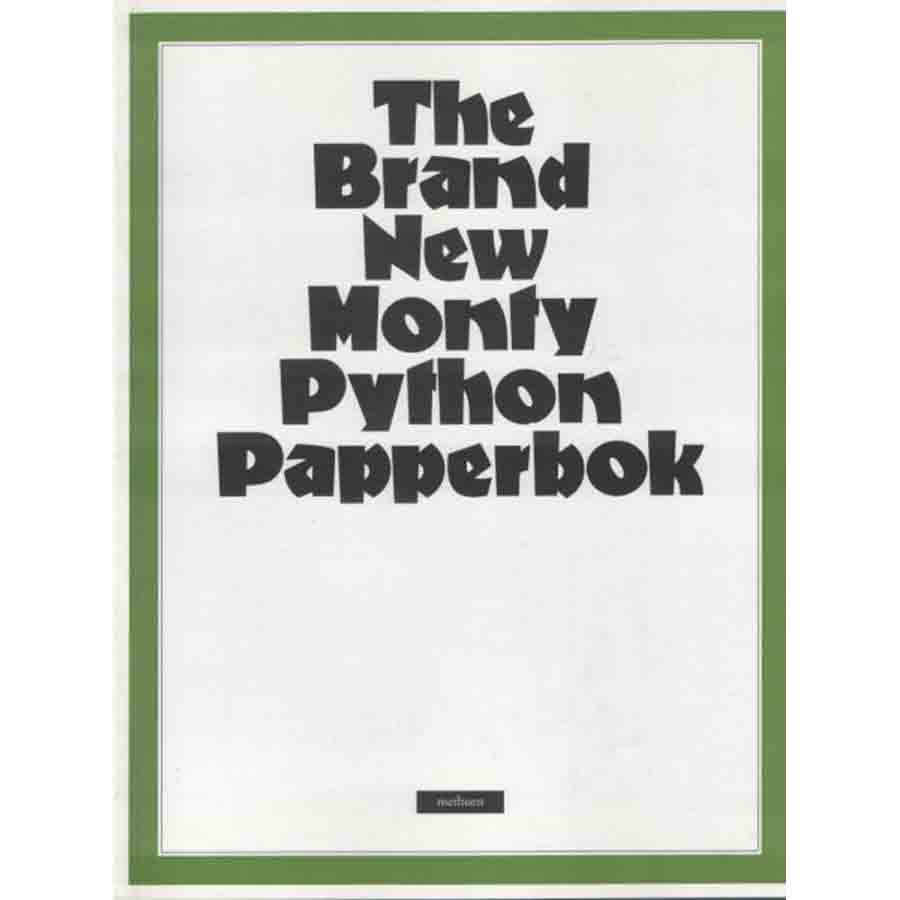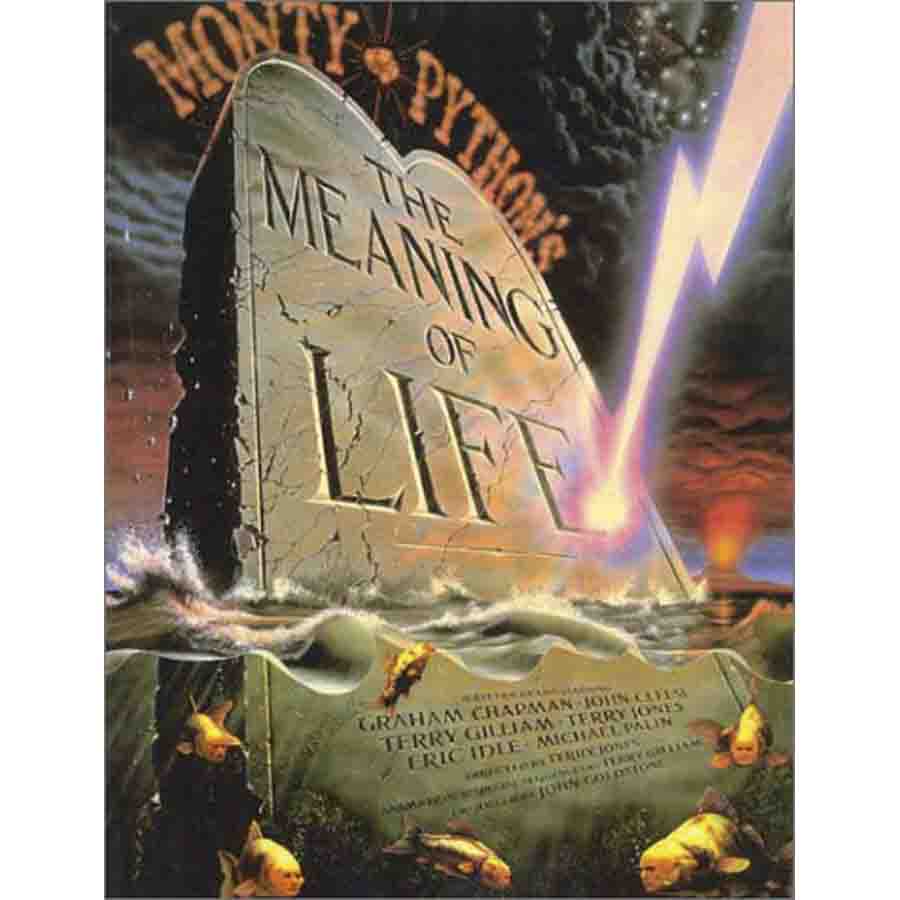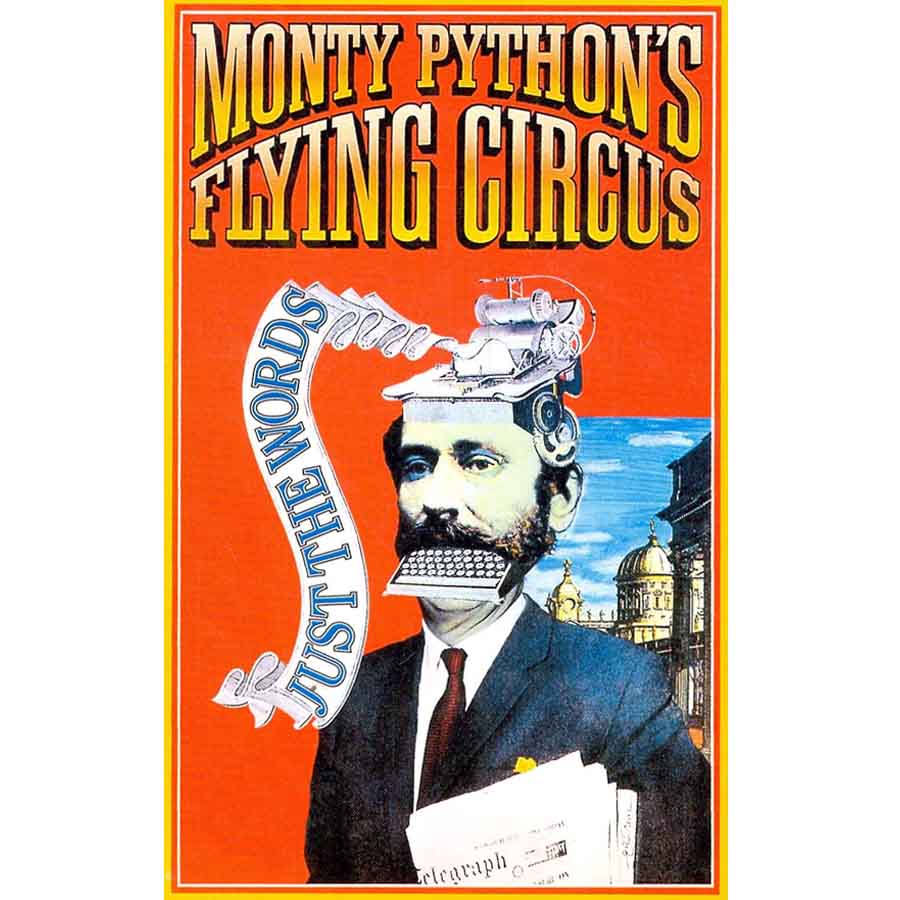The Life of Brian: Monty Python's Scrapbook
"The Life of Brian: Monty Python's Scrapbook"
Editor: Eric Idle
Contributing Editor: Michael Palin
Designers: Basil Pao, Mike Diehl
Publisher: Eyre Methuen
Publication Date: 1979 (Paperback)
This oversized book is actually two books printed back-to-front – a reproduction of the screenplay, and a scrapbook of deleted scenes and original material. The book you read depends on which side you start it on.
Contents
The screenplay of "The Life of Brian (of Nazareth)" is reproduced with a generous helping of production stills.
The "Monty Python Scrapbook" features dialogue from deleted or unfilmed scenes, such as Brian preaching about forced sex, his encounter with the psychopathic beggar, and the shepherds keeping watch over their flocks by night.
There is also an introduction by Squadron Leader Bigglesworth; name-dropping diary entries by Terry Jones and Michael Palin from the Pythons' Caribbean sojourn where the screenplay was polished; "Monty Python's First Ten Years," a tribute by Queen Elizabeth; a list of what film stars should take with them on location (No.1: A bottle-opener); cinema quizzes; Palin's letter from Tunisia; how much Brian actually had to feed the multitudes; "What to Do If You Win a Granny"; excerpts from "Sharing" magazine, such as Palin's memoir, "Sharing a Caravan With John Cleese"; iIlustrations from Terry Gilliam's animated opening titles; the script of a trailer featuring the aliens; the sports page of the Jerusalem Advocate; lyrics of the "Otto Song," "All Things Dull and Ugly," and for some reason, the Bruces' "Philosophers' Song"; a list of medications brought to Tunisia by crew doctor Graham Chapman; an appreciation by Graham Greene; and a helpful guide on what to do after the movie's over.
The Making of
The strength of the "Life of Brian" script comes from the story grounded in very real characters and their situations (despite a passing spaceship – but hey, it could happen!).
When asked how he approached the creation of characters, such as Ben, the prisoner who taunts Brian, Palin said, "I think they are very instinctive. Certainly it's the way I write. I just write something which comes into my head, or a situation, and it comes out like that, and then probably at the end you can make a connection: 'Ah yes, I can see where this comes from.' But at the time it feels very intuitive.
"Unlike Ben, who was created from nowhere, Pontius Pilate was a legitimate historical character, part of the Bible story, [therefore] he had to be dealt with. How do you deal with this man? I must have felt: ruling class, British ruling class, very often distinguished through some aristocratic inbreeding by vowel difficulties of some kind, or vocal distinctions I think it might have come form there.
"Pilate never acknowledges that he has a problem at all. This is the wonderful thing, again I think this just have come in my mind from listening to Violet Bonham Carter or people like that, the English aristocracy. They have vewy stwange ways of tawking, and they doughn't think eet's vewy extwawdinawy at awl!"
But just as the film faced possible prosecution for blasphemy in the British courts, so, too, did the book. Publisher Eyre Methuen was concerned after the Canadian Broadcasting Corporation banned a radio documentary about the making of "Life of Brian" (which included clips from the film). When asked his opinion on whether the book of the screenplay and deleted scenes might risk a similar fate, a Canadian lawyer said yes: "I am most concerned with the traditional book-banning groups so long accused of narrow-mindedness in prosecuting and persecuting books about sex, who will jump on this book as a move to clear their reputation."
He also warned that a judge or jury might find elements of the film (and script) to contain "scurrilous, offensive, contumelious abuse to sacred subjects."
Awaiting word whether the film would pass the U.K. censors, Methuen feared being liable in criminal proceedings, as blasphemy was a criminal offense. Among the areas of concern was the "Scrapbook"'s scene between Solly and Sarah, a young pregnant woman who relates how she was ravished by a "Holy Ghost."
The Pythons stood firm unwilling to make changes to the book (which had been published in the United States with no censorship), and after the film was given an "AA" stamp of approval by the British censors, Methuen moved forward.
… Except when it came to the printers, who had consulted their own lawyer, none other than the man who had successfully prosecuted Gay News and worked as an adviser to the Festival of Light, a group that advocated against sexually-explicit material in the media. Consequently, the first printing of the book had the unique distinction of being printed by TWO printers – one for the screenplay, and one for the "Scrapbook."
Reception
While the film itself was banned in Ireland, Norway, parts of America's Bible Belt, and several communities in the United Kingdom, the printed screenplay was also banned in South Africa, where it joined "Monty Python's Big Red Book" and "The Brand New Monty Python Bok" on its list of "objectionable literature" deemed to be prejudicial to the South African government.
By David Morgan, 2014
AVAILABLE FOR PURCHASE HERE
